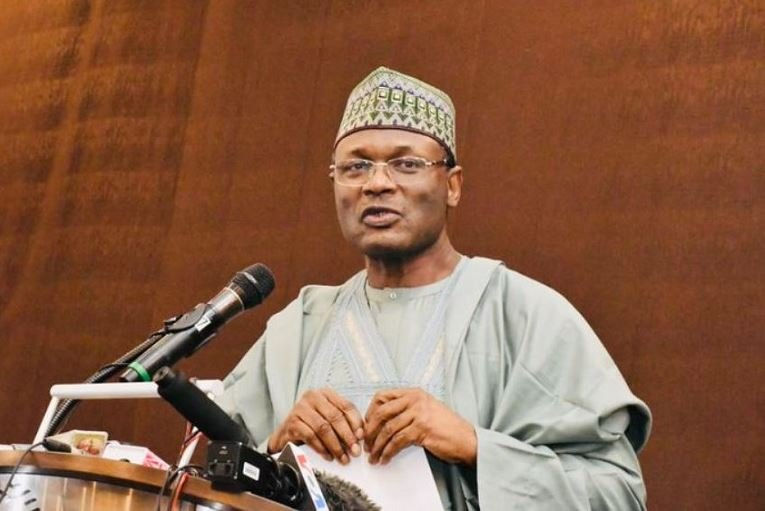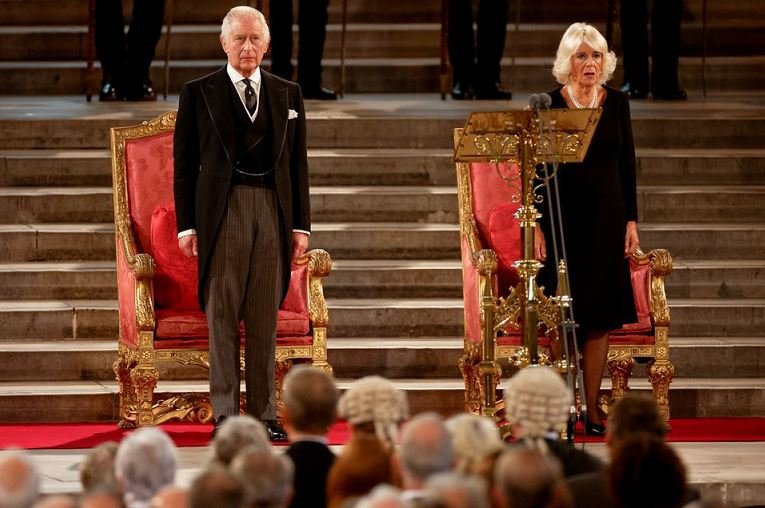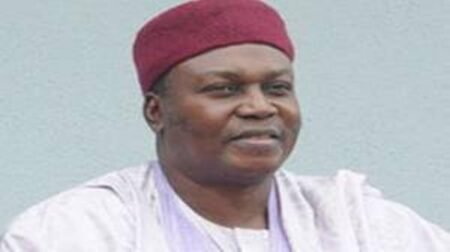Former Commonwealth Secretary-General Dr. Emeka Anyaoku said on Wednesday that if Nigeria refuses to do away with the 1999 Constitution, it would be difficult for anyone to fix the country.
He viewed Nigeria as a pluralistic country that needs to handle its variety through truly federal constitutions.
“To those who think that the trouble with Nigeria today is the political leadership, I would say that as long as we have the 1999 Constitution as our basis, not even Angel Gabriel or Malaikah Jibrin as leaders can successfully tackle the divisiveness, the underperforming economy with the resultant poverty, the insecurity, the humongous corruption, and the other major challenges currently facing Nigeria,” Anyaoku said.
The elder statesman stated this at the launch of the book “The Noble Academic and Patriot: A Biography of Emeritus Professor Akinjide Osuntokun,” held at the Nigerian Institute of International Affairs, Victoria Island, Lagos.
Speaking as the chairman on the occasion, he said, “I start from the clearly undeniable fact that Nigeria, like many other countries across the world, is a pluralistic country, that is, a country whose population consists of groups of peoples long established in their separate geographical areas with different histories, cultures, languages, and religions.
“The universal lesson is that pluralistic countries that have survived as single political entities in unity and progress are those that addressed their pluralism, that is, their diversity, with genuine federal constitutions. Examples of such countries are India, Canada, and Switzerland.
“I believe, therefore, that if our pluralistic Nigeria is to achieve true unity and political stability and to successfully tackle the serious challenges that the country currently faces, it must have a truly federal constitution.”
Anyaoku praised Osuntokun, recalling how the renowned professor fought for him when he was running for the office of Secretary General of the Commonwealth.
“I first knew of Jide Osuntokun when he was adviser to Nigeria’s Foreign Minister, General Ike Nwachukwu, and accompanied the Foreign Minister in his journeys to campaign for my candidacy for the office of Commonwealth Secretary-General.
“I was then running against the man who had been the Prime Minister of Australia for seven and a half years.”
According to him, Osuntokun is not only an accomplished academic “but also a patriot who was deservedly recognised last year by the prestigious Hallmarks of Labour Foundation through the conferment of an award with the title HLF on him, which means a role model for our young people in how to achieve success through hard work and integrity.”
Speaking at the event, a former governor of Ekiti State and the book reviewer, Dr Kayode Fayemi, explained how Osuntokun authorised the biography in 2021, though the idea was conceived by the authors in 2018.
Fayemi walked the attendees through the professor’s genealogy, including his academic and family life, as described by the authors.
“The authors informed us that the book project was conceived in 2018 after Prof. Osuntokun served as Pro-Chancellor and Chairman of the Council of the Ekiti State University, Ado-Ekiti. Prof. Osuntokun graciously authorised the biography in 2021 by granting the authors extensive interviews and two virtual interviews in addition to providing access to his library and archives.
“The book manuscript, in nine crisp and concise chapters with three appendices, started in the first chapter by tracing the genealogy of Prof. Osuntokun.
“The authors provide extensive evidence of family history, entrepreneurial acumen, and pacesetting influence in the community to explain the values and attributes we later associate with Professor Osuntokun.
“The chapter covered in great detail the struggles, his bold forbearance waged in the course of establishing a clan in Oke-Mesi, and their involvement in the federating military of Ekiti and Ijesa against the rampaging Ibadan army in the Kiriji war.
“Another of his forebears had fought in the First World War on the side of the British. His own father had gone in pursuit of the Golden Fleece, as far afield as the mines of Ghana, and became a wealthy itinerant trader, all the while his employers returned from Ghana, in the course of which he married his mother and settled the family in Ilawe-Ekiti.”
Peter Obi, the former governor of Anambra State who also spoke at the event, said he had so much to learn from Osuntokun “because if you have taught these wonderful people who spoke about you today, I have a lot to learn from you.”
He, however, decided that Nigeria had cultivated a culture of celebrating those who contributed nothing to nation-building, noting that it was destroying society.
Obi said, “When the National Universities Commission Secretary-General said they are looking for PhD people to teach in our universities, I called him and said, Why do you want anybody to do PhD when you don’t pay them and you pay thugs 100 times what they are paid? We are choosing the least among us to be our role models. And that is destroying our society.”











